PLENARY SPEAKERS

Advancements in mRNA structural characterization
KOEN SANDRA
CEO and Co-owner at RIC group (Kortrijk, Belgium)
Koen Sandra received a PhD degree in Biochemistry from the Ghent University, Belgium in 2005. After his PhD, he joined Pronota, a molecular diagnostics company where he was active in developing analytical platforms for disease biomarker discovery and in setting up external collaborations. In 2008, he joined RIC, a company that provides analytical support to the chemical, life sciences and pharmaceutical industries, where he holds the position of CEO. As a non-academic scientist, Koen Sandra is author of over 50 highly cited scientific papers and has presented his work at numerous conferences as an invited speaker. He has been listed several times in the Analytical Scientist’s Power List celebrating the world’s most influential people in the field and has been the recipient of the HTC award.
Automating the Analytical Laboratory - Current Developments and Future Perspectives
KERSTIN THUROW
Director of the Center for Life Science Automation (University of Rostock, Germany)
Prof. Dr.-Ing. habil. Kerstin Thurow studied chemistry and received her doctorate from the Ludwig Maximilian University of Munich in 1995. In 1999, she habilitated in measurement and control engineering. In the same year, she was appointed to the professorship of "Laboratory Automation" at the Faculty of Engineering at the University of Rostock. Since 2004, she has held the chair of "Automation Technology / Life Science Automation" at the University of Rostock and is Director of the Center for Life Science Automation (University of Rostock). Dr. Thurow has authored more than 250 publications, including three monographies. Her research topics include the automation of life science and analytical processes, robotics, mobile robotics, as well as system integration and systems engineering.
Dr. Thurow is a founding member of the Academy of Sciences Hamburg and a member of the Technical Academy acatech.
Lorem ipsum dolor sit amet, consectetur adipiscing elit. Ut elit tellus, luctus nec ullamcorper mattis, pulvinar dapibus leo.
KEYNOTE SPEAKERS

Streamlining method development in comprehensive 2D-LC using a freely accessible tool
DAVY GUILLARME
Davy Guillarme, Ph.D. in analytical chemistry from the University of Lyon, France, currently serves as a senior lecturer and research associate at the University of Geneva in Switzerland. With over 350 published journal articles in pharmaceutical analysis and h-index of 77 (Google Scholar), his expertise spans various techniques, including HPLC, UHPLC, HILIC, LC−MS, SFC, SFC-MS, multidimensional LC, and the analysis of biopharmaceuticals.
He is an associate editor of the Journal of Chromatography A. He serves on the editorial advisory board of prestigious journals like Trends in Analytical Chemistry, Journal of Chromatography B, Journal of Separation Science, LC−GC International...
Davy Guillarme has been honored with the LC-GC Emerging Leader Award in Chromatography (2013), the Jubilee Medal from the Chromatographic Society (2018), and the International Award of the Belgian Society of Pharmaceutical Sciences (2022). He has also been listed among the world's most influential analytical scientists by "Analytical Scientist" magazine in multiple years.

Frontiers of high-resolution accurate mass analysis
ALEXANDER MAKAROV
Alexander Makarov obtained his PhD from the Moscow Engineering Physics institute in 1992. In 1996 he embarked on pioneering work on the Orbitrap mass analyzer at HD Technologies Ltd, a small company based in Manchester, UK. After its acquisition by Thermo Electron in 2000, Alexander spearheaded development of the Orbitrap analyzer from first prototypes to the commercial launch of the LTQ Orbitrap instrument in 2005. Under his guidance, the Orbitrap technology expanded to encompass five major families of commercial instruments. He also provided scientific leadership of the Astral analyzer development and technologies for high-mass analysis.
His awards include the Award for Distinguished Contribution in Mass Spectrometry from ASMS, the Aston medal by BMSS and the Thomson medal from IMSF. Presently, he is Director of Research at the Life Science Mass Spectrometry Business Unit of Thermo Fisher Scientific in Bremen, Germany and a Fellow of the Royal Society in the UK.
Isomer separations in biosciences
MICHAEL LÄMMERHOFER
Michael Lämmerhofer is Full Professor for Pharmaceutical (Bio-)Analysis at the University of Tübingen, Germany (since 2011). He graduated in Pharmaceutical Sciences in 1992 and earned his PhD in Pharmaceutical Chemistry in 1996 at the University of Graz, Austria. Between 1997 and 2002 he was assistant professor and from 2002 to 2011 associate professor at the University of Vienna, Institute of Analytical Chemistry. Between 1999-2000 he spent a year as post-doctoral researcher at the Department of Chemistry of the University of California, Berkeley. Since 2007, he is associate editor of Journal of Separation Science and since 2024 editor-in-chief.
His research interests include bioanalysis (metabolomics and lipidomics), pharmaceutical analysis (impurity profiling, enantioselective analytics), multidimensional separations and biopharmaceuticals analysis (peptides, oligonucleotides, proteins, plasmids), and the development of functionalized separation materials (chiral stationary phases, mixed-mode phases, chemo- & bioaffinity materials, nanoparticles, monoliths).
From Science-Fiction Chromatography to modern SFC
CAROLINE WEST
Caroline West is a full professor in analytical chemistry at the University of Orleans, France, where she is teaching separation science. Her main scientific interests lie in fundamentals of chromatographic selectivity, both in the achiral and chiral modes, in SFC and LC. She is also applying these methods, with or without hyphenation to extraction methods and/or MS, to samples of pharmaceutical interest and natural products. She has authored about 120 papers in international peer‐reviewed journals and has presented about 120 lectures in conferences. In 2015, she received the “LC‐GC Emerging Leader in Chromatography” award. She was ranked several times among the most influential people in analytical chemistry by “The Analytical Scientist” magazine (“Top 40 under 40” 2014 & 2018, “The Power List” 2019, 2020 & 2021), and received the Jubilee medal from the Chromatographic Society (2021). She is also an advisory board member for several journals in separation science (J. Chromatogr. A & Open, J. Sep. Sci., J. Pharm. Biomed. Anal., Chromatographia…)
Theoretical and practical aspects of miniaturization in Liquid Chromatography
LUIGI MONDELLO
Luigi Mondello is Full Professor of Analytical Chemistry at the University of Messina, Italy and his leading the Food and Analytical Chemistry Group of the same University. His research is focussed on the development of conventional chromatography and multidimensional chromatographic instrumentation and software (GC×GC, LC×LC, LC-GC×GC, LC-GC-GC-GC-prep.), coupled to state-of-the-art MS, for the study of complex matrices constituents and contaminants in foodstuff. He is co-author of around 700 scientific papers and more than 1300 conference presentations of which more than 240 invited, with an H-index of 67 (Scopus) He is also Editor of Green Analytical Chemistry, and was the recipient of many Awards including the Marcel Golay, Liberti Medal, A.J.P. Martin Medal the Tsweet-Nernst and the Life Time Achievements in Comprehensive Gas Chromatography and also member of the permanent scientific committee of the International Symposium on Capillary Chromatography and many other conferences.
The Sense and Nonsense of Artificial Intelligence in Chromatography
BOB PIROK
Bob Pirok obtained his PhD in 2019 in Amsterdam after having worked for several years in industry. He is currently associate professor at the University of Amsterdam where he focuses on the application of chemometrics in analytical chemistry, with a special interest in method development and data analysis for (multi-dimensional) chromatography. He is a visiting research professor at Gustavus Adolphus College in the group of Prof. Dwight Stoll.
He received several international awards, including the Csaba Horváth Young-Scientist Award in 2017, the Journal of Chromatography Award in 2018, and the HTC Innovation Award in 2024 for his work on automation of method development in LC.
He was selected as Early Career Board member for Analytical Chemistry in 2021 and he is Editorial Advisory Board member of the Journal of Separation Science and LC-GC International. He was featured in the 2022 edition of the Power List by The Analytical Scientist.

Green and Sustainable Analytical Chemistry: Myths, Truths and Opportunities
ELIA PSILLAKIS
Elefteria (Elia) Psillakis is a Water Chemistry Professor at the School of Chemical and Environmental Engineering, Technical University of Crete, Greece. In 2007, she received a Fulbright Award as a visiting Professor at CALTECH, USA. She was featured in the Top 100 Power List 2021 of the magazine “The Analytical Scientist” and has received three “Top cited article” awards. She has published more than 100 papers that have received ~10000 citations. She is Editor-in-Chief of “Advances in Sample Preparation” (Elsevier) and the Head of the Sample Preparation Network of the EuChemS-DAC. She is also the Founder and Director of ExtraTECH Analytical Solutions, a Spin-Off Company of the Technical University of Crete. From 2014-2016, she was the Vice Rector of Academic Affairs and Research at the Technical University of Crete

Functionalized monoliths for sample preparation
VALERIE PICHON
Valérie PICHON, full professor at Sorbonne University (Paris), leads the Department of analytical chemistry (LSABM), a part of the department of Chemistry Biology and Innovation (CBI) located at ESPCI Paris (PSL University, CNRS) and also leads the CBI department.
Her main research interests include the development and miniaturization of antibody- or aptamer-based sorbents and molecular or ionic imprinted polymers for the selective extraction of target compounds present in trace amounts in complex samples.
She is the author of over 150 publications, 7 book chapters and 3 patents. She is associate editor of Journal of Separation Science. She has received the Analytical Chemistry Department Prize of the French Chemical Society (2001), the Silver Medal of the French National Centre for Scientific Research (2022) and recently the Senior Prize of AfSep, the French Association for Separation Sciences (2023).

Potential of Immunoaffinity Chromatography and Field-Flow Fraction for the Fractionation and Isolation of Biomacromolecules
MARJA-LIISA RIEKKOLA
Since 1987 Professor of Analytical Chemistry, University of Helsinki. Educated over 450 MSc and 40 PhD degrees in analytical chemistry. Research interests: Development of analytical instrumental techniques and their applications to atmospheric studies and to isolation of biomacromolecules. Active board member in national and international scientific committees, councils, evaluation panels and societies in different countries in Europe. Published over 400 scientific peer-reviewed publications, one book (1st edition and 2nd extended edition in Finnish), and as joint Editor book on Liquid Chromatography (Vols. 1 and 2, 2017 and 2023, Elsevier) and 15 book chapters, and over 200 other scientific papers in the field of analytical chemistry. Awarded the Magnus Ehrnrooth Prize in Chemistry, Emmanuel Merck Prize in Chromatography and the Russian Tswett Medal in Chromatography. Member of the Finnish Society of Science and Letters, and Member of Finnish Academy of Science and Letters. Belonged in 2013 and 2015 to the top 100 Power List and in 2016 the top 50 Women list and in 2023 to Leaders and Advocates in Analytical Science of the magazine “The Analytical Scientist”. Editor-In-Chief of J. Chromatogr. A and Editorial Board Member of Electrophoresis, J. Chromatogr. Open, J. Sep. Sci., J. Chromatogr. Sci., Results in Chemistry and AIMS Environmental Science.
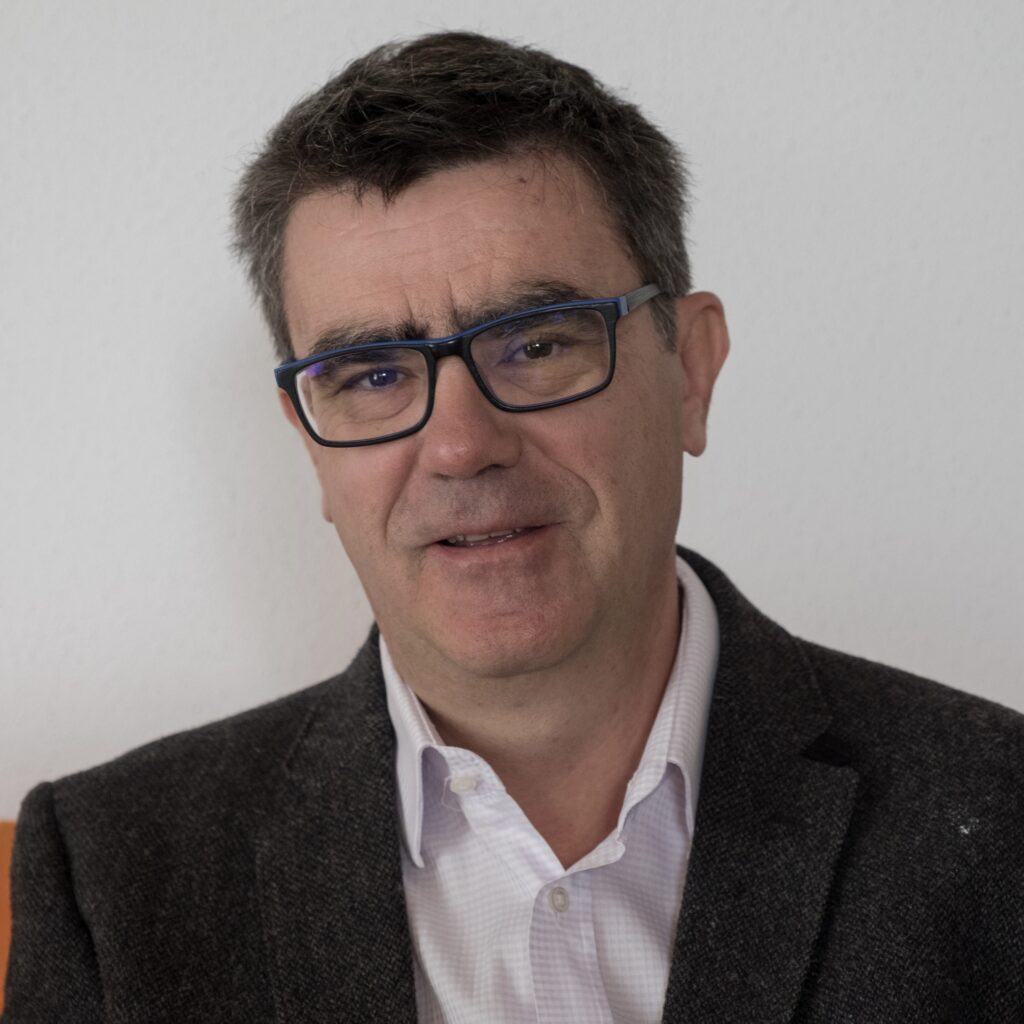
How much chromatography is needed for the multimodal mass spectrometric analysis of metabolites and lipids in plasma and urine of drug of abuse consumers?
GERARD HOPFGARTNER
Gérard Hopfgartner received his Ph.D. degree in 1991 at the University of Geneva. Then he moved to Cornell University, USA as a postdoctoral fellow. From 1992 to 2002 he headed the LC-MS group and the bioanalytical section at F. Hoffmann-La Roche in Basel as a scientific expert. In 2002 in joined the School of Pharmaceutical Sciences at the University of Geneva and Lausanne as a Full Professor for analytical sciences and mass spectrometry and since 2015 in the department of Analytical and Inorganic Chemistry. His research interests focus on the development of multimodal mass spectrometry approaches with and without chromatography in the field of life sciences.

Retrospective of the Development of Microscale High Performance Liquid Phase Separation Techniques
KOJI OTSUKA
Koji Otsuka was a professor at the Graduate School of Engineering, Kyoto University, from 2002 to 2023. Currently he is a specially appointed professor of the research promotion division at Osaka Metropolitan University since July 2023. He has engaged in the development of micro/nano scale high performance separation techniques using electrophoretic and chromatographic methods for over 40 years.
He received the Award of the Society for Chromatographic Sciences (SCS) in 2006, the Chemical Society of Japan Award for Creative Work in 2009, the Award of the Japan Society for Analytical Chemistry in 2014, the Terabe Shigeru Prize in 2014, the Award of the Society for Chemistry and Micro-Nano Systems in 2022, and the SCS Special Honorary Award in 2023. He is a member of the Permanent Scientific Committee of the HPLC Symposium. He served as a co-chair of HPLC2008 Kyoto and a chair of HPLC2019 Kyoto.

Multi-dimensional and enantioselective LC analysis of chiral amino acids and dipeptides –method development and biological applications
KENJI HAMASE
He graduated from The University of Tokyo and obtained his Ph.D. degree in 1996. Subsequently, he moved to Kyushu University, and was promoted to the full Professor in 2016. He is now a Vice Dean of the Graduate School of Pharmaceutical Sciences responsible for the international affairs (from 2018). He received The Japan Society for Analytical Chemistry Award for Young Scientists in 2003, The Pharmaceutical Society of Japan Award for Young Scientists in 2006 and The Society for Chromatographic Sciences Award (Japan) in 2019. His current research interests focus on the development of multi-dimensional HPLC methods for chiral amino acids and related compounds to study on their physiological functions, diagnostic values and the design of functional foods. Enantioselective analysis of extraterrestrial amino acids is also one of his research topics in cosmic materials including the asteroid Ryugu obtained by the Hayabusa 2 mission.
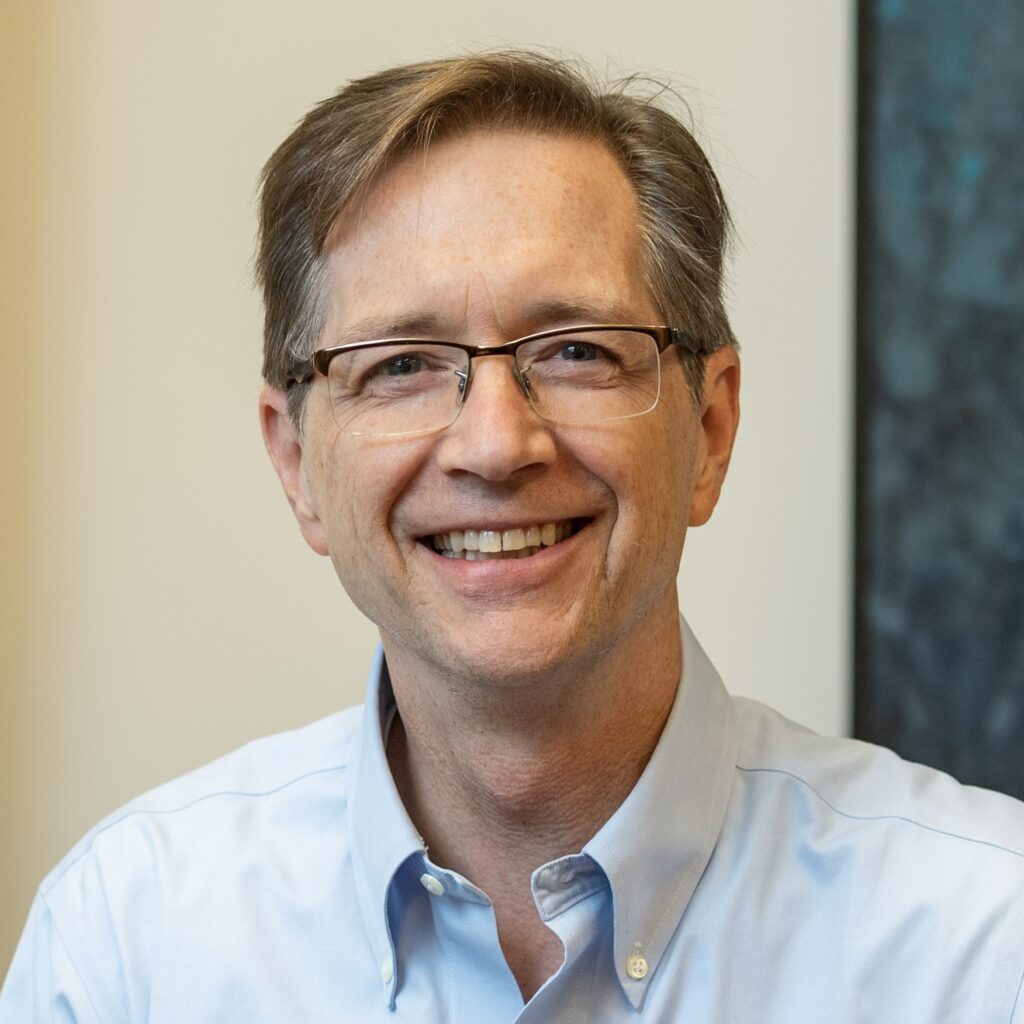
Exploring Brain Chemistry using LC, CE, and Mass Spectrometry
ROBERT KENNEDY
Robert Kennedy is the Willard Distinguished University Professor of Chemistry at the University of Michigan. His research has combined his interest in biology with chemical analysis, separations and microfluidics. A theme of his group has been development of new chemical analysis tools that can be used for engineering enzymes, monitoring neurotransmitters in the brain, and studying the secretion of insulin. Key technical areas including ultra-high pressure LC, droplet microfluidics, and mass spectrometry. His work has been recognized by several awards including the ACS Award in Chromatography and the Ralph Adams Award in Bioanalytical Chemistry. He has held several service posts including Department Chair and is presently Associate Editor of Analytical Chemistry and ACS Measurement Science Au.
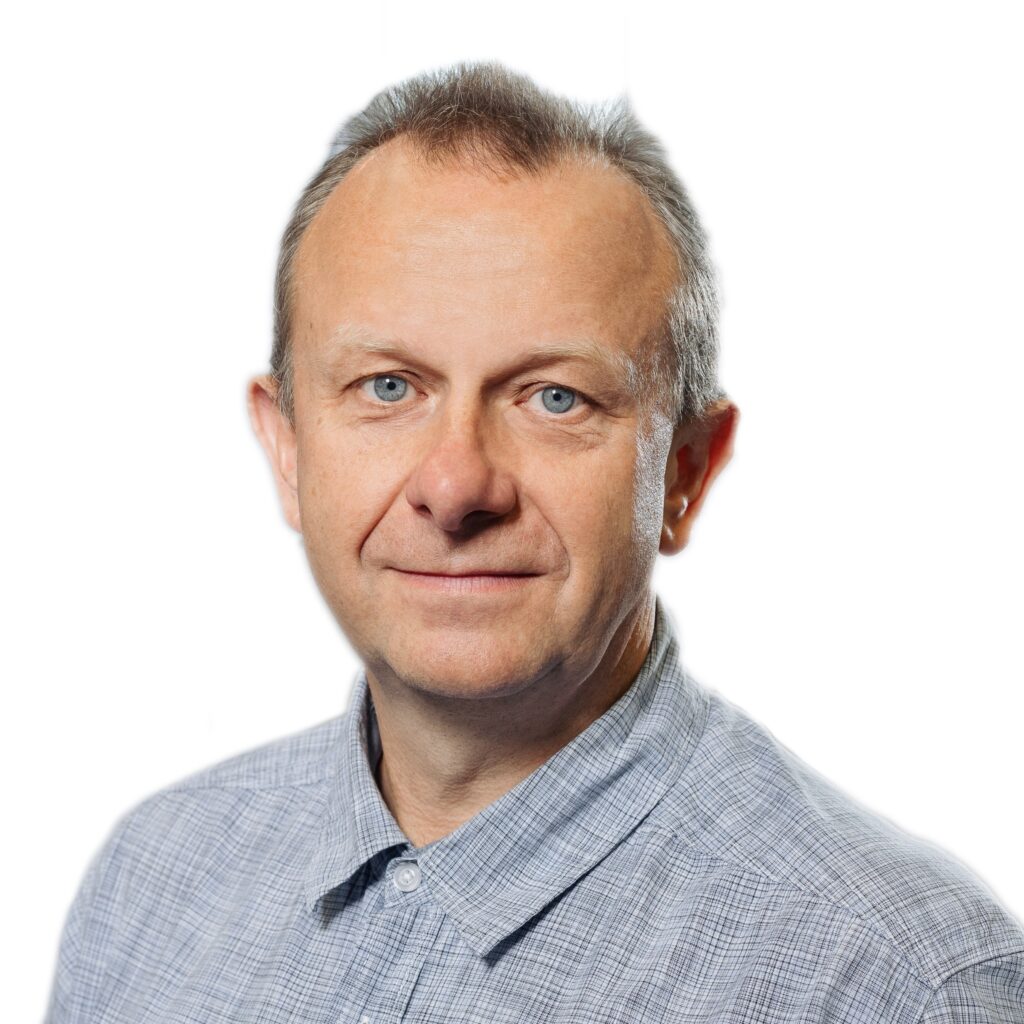
Can we combine high-throughput and comprehensive lipidomic quantitation ?
MICHAL HOLCAPEK
Michal Holčapek obtained his Ph.D. in analytical chemistry from the University of Pardubice, where he currently works as a professor of analytical chemistry. His research focus is mass spectrometry and its coupling with liquid chromatography or supercritical fluid chromatography, applied mainly in lipidomic analysis and cancer biomarker research. He has received numerous prestigious awards, including the Neuron Award for connecting science and business (2023, Neuron Foundation), the Rudolf Lukeš Prize (2023, Experientia Foundation), the Herbert J. Dutton Award (2022, American Oil Chemists' Society), and repeated recognition on The Analytical Scientist's Power List of the most influential people in analytical sciences. He is one of the founding members of the Lipidomics Standards Initiative and currently serves as Vice President for Conferences at the International Lipidomics Society.
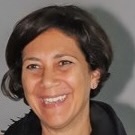
Multidimensional liquid chromatography strategies for the analysis of natural products
PAOLO DUGO
Dr. Paola Dugo is a full Professor of Food Chemistry and vice-rector for Research at the University of Messina (Italy).
Her research focuses on innovative chromatographic techniques and multidimensional techniques in combination with mass spectrometry for the study of complex natural matrices and food products.
She served as Coordinator of the Italia Group of Food Chemistry of the Italian Chemistry Society (2019-2021) and is now part of the board. She is editor of Journal of Chromatography A (Elsevier)

Comprehensive 2D LC-MS to study phenolic evolution in single vineyard wines
ANDRE DE VILLIERS
André de Villiers is a Professor in Analytical Chemistry at Stellenbosch University, South Africa. His research activities include fundamental studies and the practical application of chromatographic separations, with the emphasis on natural product analysis. Specific areas of interest include comprehensive 2-dimensional liquid- and gas chromatography, ion mobility spectrometry and advanced mass spectrometric methods in combination with separation methods. He is author or co-author of more than 100 scientific papers and the recipient of the 2009 Csaba Horváth Award and LCGC’s Emerging Leader in Chromatography Award in 2014.

Exploring retention properties and selectivities of different stationary phases for the characterization of natural extracts through UHPLC coupled to HR-MS
MARTINA CATANI
Martina Catani is associate professor of analytical chemistry at the University of Ferrara (Dept. of Chemical, Pharmaceutical and Agricultural Sciences).
She received a PhD in chemical sciences in 2018 from the same University. During her career, she has spent research periods at VUB Brussels (Belgium), University of Pécs (Hungary) and ETH Zurich (Switzerland).
Her research activities are in the field of liquid chromatography for both analytical and preparative purposes, including the development of green separation methods. More recently, she has started working also on analytical approaches applied to omics science through untargeted liquid chromatography coupled to high resolution mass spectrometry.
She is co-author of more than 80 papers on peer reviewed journals and she collaborates with many industrial partners. Martina has been the recipient of many awards, including the “Csaba Horváth Young Scientist Award” conferred at HPLC2018 Washington (USA), and in 2024 of the “Emerging Leader in Chromatography Award” conferred by LCGC.
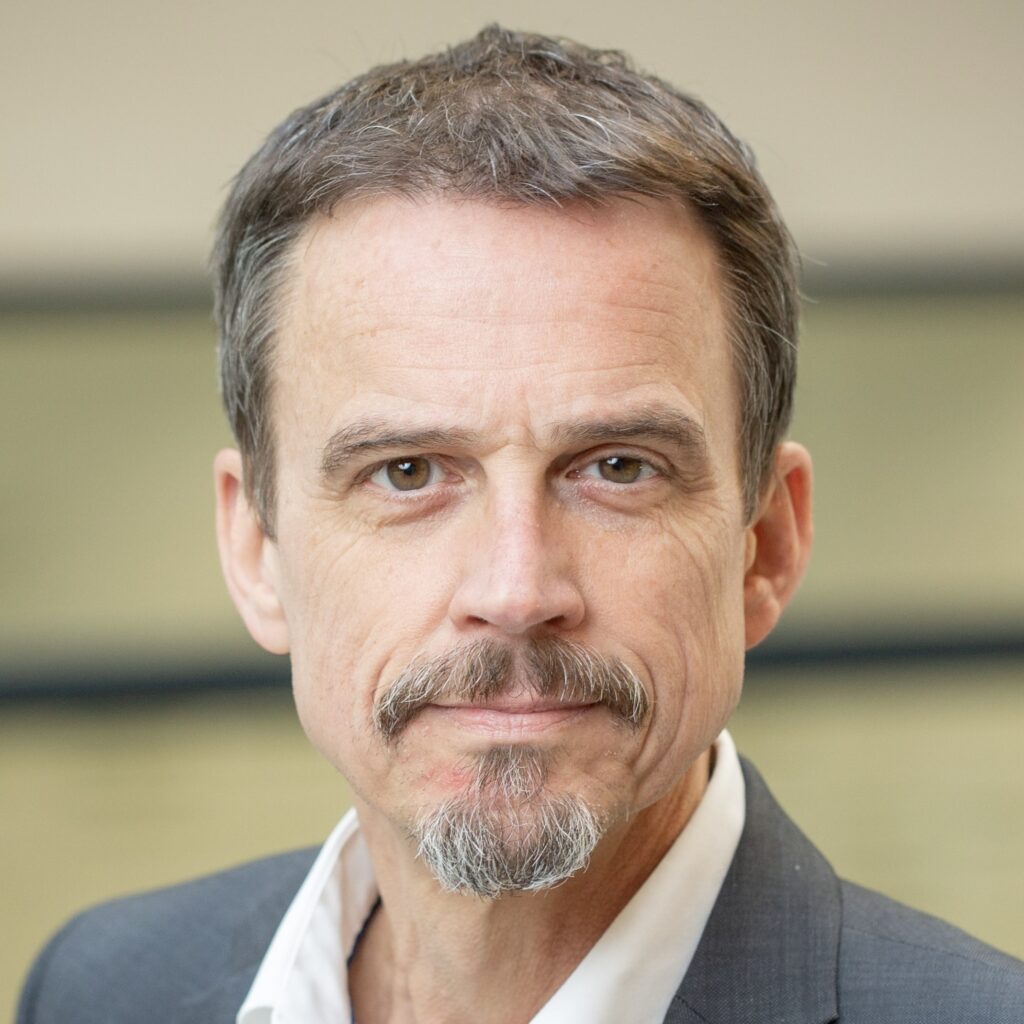
Assessment of nanoparticle distributions: divide and conquer
GOVERT SOMSEN
Govert W. Somsen is full professor of Biomolecular Analysis/Analytical Chemistry at the Vrije Universiteit Amsterdam. His main expertise is on hyphenated concepts in separation science directed to the characterization of (bio)polymers, nanoparticles and complexmixtures. His group made significant contributions to the development, optimization and application of coupled analytical techniques combining selective liquid-phase separations with mass spectrometry, optical spectroscopy and bioactivity assays. He is (co-)author of over 230 papers in these fields. He is editor of Journal of Chromatography B and has (co-)organized a number of international symposia in the field of analytical separations. He is co-founder of the Center of Analytical Sciences Amsterdam (CASA), the Dutch focal point for excellence in analytical research and education, and member of the consultation committee Chemistry of the Dutch Research Council.

3D printed devices for chemical analysis and separations.
MICHAEL BREADMORE
Michael Breadmore Obtained his PhD in Analytical Chemistry in 2001 from the University of Tasmania, before spending time at the University of Virginia, University of Bern and with deltaDOT. He returned to UTAS in 2004 as an Australian Research Council fellow (APD 2004-2008; QEII 2009 – 2013; Future Fellowship 2014-2017) where he has a continuing position. He has published over 200 peer-review papers, is co-inventor on a number of patents and has 5 commercial products at market based on his research.
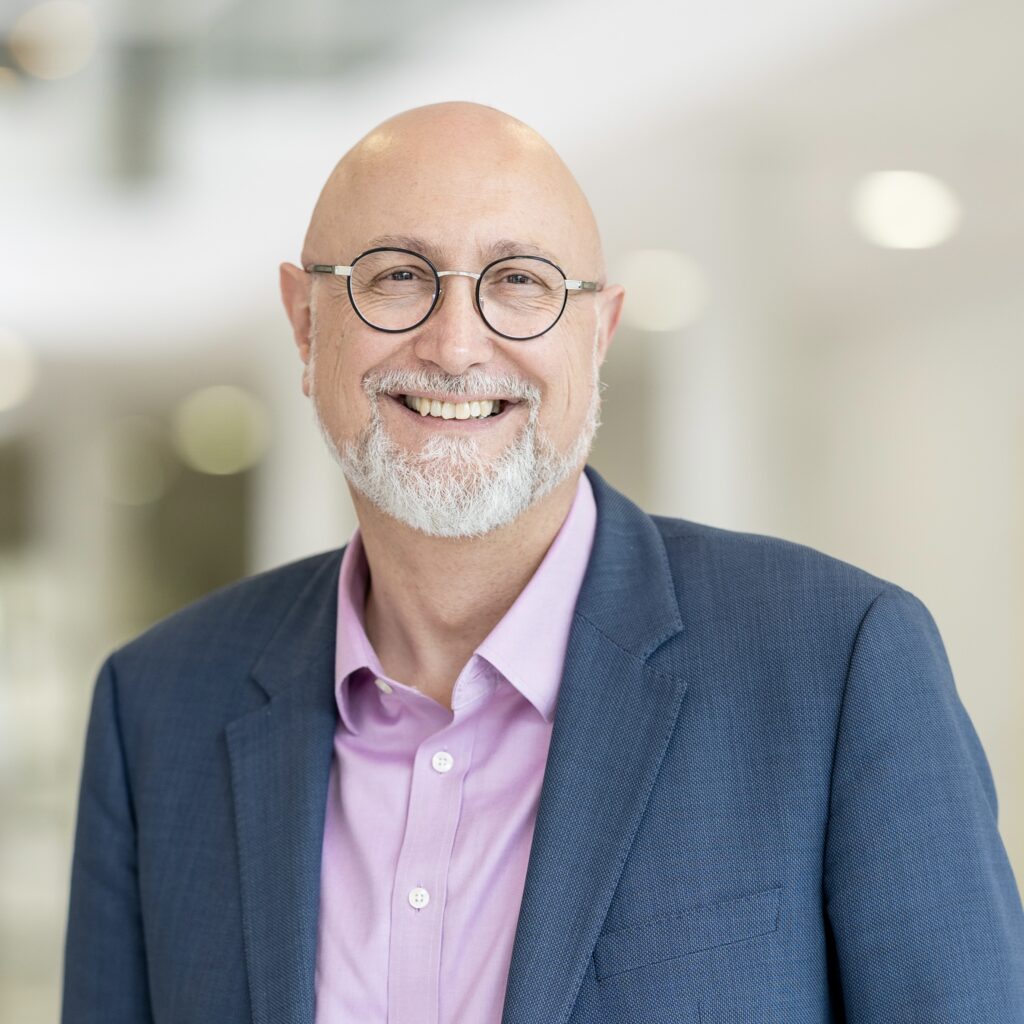
Boosting the separation power of LC×LC
OLIVER SCHMITZ
Since 2012 Oliver J. Schmitz has been a full professor at the University of Duisburg-Essen and is the chair of the Institute of Applied Analytical Chemistry.
In 2018 Oliver has founded, together with Agilent, the Teaching and Research Center for Separation (TRC) at the University of Duisburg-Essen.
Prof. Schmitz´s main research area is separation science, with a particular focus on non-target analysis of complex samples, the development of ion sources, the use and optimization of multidimensional LC and GC, ion mobility-mass spectrometry and metabolomics. He was awarded the scholar-in-training award of the American Association for Cancer Research in 2003, the Gerhard-Hesse Prize for chromatography in 2013 and the Andrzej Waksmundzki medal award in 2019.
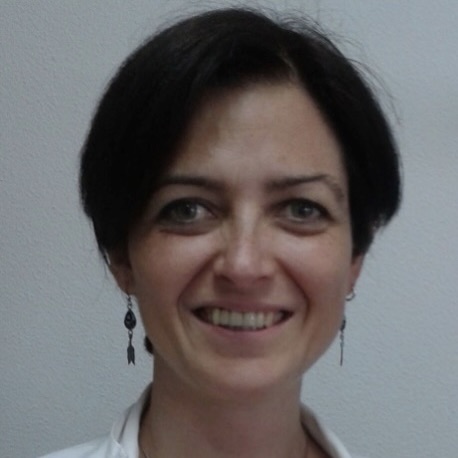
GC-Based Hyphenated Techniques in Food Analysis
GIORGIA PURCARO
Giorgia PURCARO is an analytical chemistry professor at the Gembloux Agro-Bio Tech Department of the University of Liège, Belgium.
She works on developing and miniaturizing sample preparation coupled with hyphenated chromatographic techniques (LC-GC and GCxGC), mainly related to food contaminants and quality.
She is the author of over 140 publications, 12 book chapters and more than 200 conference presentations. She received the Leslie Ettre Award for the most outstanding contribution in capillary chromatography and the J.Philips Award for her contribution to the field of comprehensive two-dimensional GC.
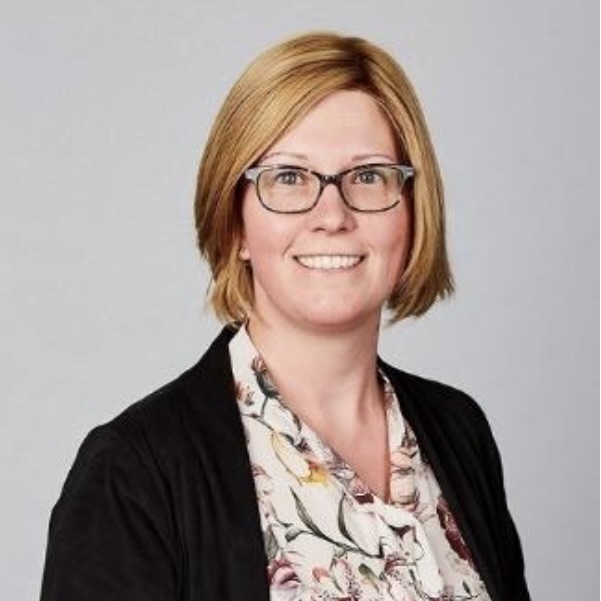
Development of Quantitative Structure Enantioselectivity Relationships to predict enantioseparations on polysaccharide-based chiral stationary phases
DEBBY MANGELINGS
Debby Mangelings is professor at the department of Analytical Chemistry, Applied Chemometrics and Molecular Modelling of the Vrije Universiteit Brussel (VUB) in Belgium. She obtained a Ph.D. in Pharmaceutical Sciences in 2006.
Her research focuses on the use of liquid chromatography (LC), supercritical fluid chromatography (SFC) and miniaturized separation techniques such as capillary electrophoresis (CE) and capillary electrochromatography (CEC) for a variety of pharmaceutically oriented applications. In the field of chiral separations, enantiorecognition mechanisms on polysaccharide and macrocyclic antibiotic chiral phases are currently studied. Other investigated topics are the introduction of novel sample pretreatment techniques in metabolomics and method development for targeted and untargeted metabolomics using LC-MS, CE-MS and SFC-MS. Her publication record includes 16 book chapters and 115 manuscripts in peer-reviewed journals. She is member of the editorial board of Chromatographia, LCGC International and Acta Chromatographica. In 2016, she received the LCGC Emerging Leader in Chromatography Award.

SEC-UV-MALS for exploring oligomeric enzyme disruptors in the context of drug design
MARIANNE FILLET
Marianne FILLET is full professor at the department of Pharmacy at the University of Liège. She leads the laboratory for the Analysis of Medicines and the Mass Spectrometry platform. Her research themes focus on the development of analytical tools for biomarker discovery of human diseases and for the quality control of medicines (more particularly biopharmaceuticals), in an efficient and robust workflow (from sample collection to data analysis). Her research team is also developing analytical solutions to explore drug-target and protein-protein interactions in native-mimicking in vivo environment.
She is a (co)author of more than 240 peer-reviewed papers, with a H-index (Google Scholar) of 53, with more than 9000 citations. She was chair of several national or international congress, such as Drug Analysis/PBA 2014 and MSB 2022.

A study of the potential of peraqueous liquid chromatography as a green chemistry analytical approach
DAVID McCALLEY
David McCalley is Professor of Bioanalytical Science at the University of the West of England. In 2021, 2019, 2015 and 2013, he was named as one of the world's 100 most influential analytical scientists. He was awarded the Silver Jubilee medal of the Chromatographic Society in 2008 and its prestigious gold (Martin) medal in 2024. His research attempts to understand separation mechanisms in HPLC, including effects of pressure and temperature on retention/efficiency, mixed mechanisms for strong bases, superficially porous packings, and overloading in both RP and HILIC. In HILIC his work has focussed on methods to improve robustness and applicability. Applications have included analysis of monoclonal antibodies, peptides, steroids, pharmaceuticals and clinically relevant compounds using both UV detection and mass spectrometry. His h index is 45. His work has attracted funding from the Engineering and Physical Science Research council (EPSRC), GSK, AstraZeneca and Pfizer, and instrument companies Agilent, Waters and Thermo.
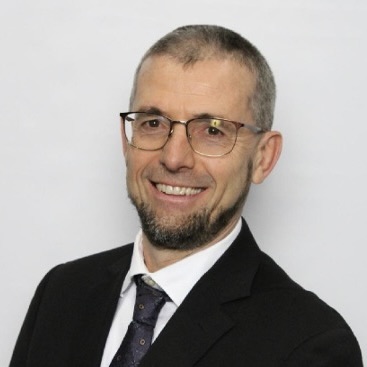
Rebirth of slalom chromatography: separation fundamentals and key applications in cell and gene therapy
FABRICE GRITTI
Fabrice G. Gritti received a Ph.D. in Chemistry and Physics of Condensed Matter from the University of Bordeaux I (France) in 2001. He then worked as a research scientist at the University of Tennessee (Knoxville, TN) from 2002 to until 2014 in the research group of Prof. Georges Guiochon. He joined Waters Corporation in 2015 where he is currently a consultant scientist.
Dr. Gritti’s main research interests involve liquid/solid adsorption thermodynamics and mass transfer in heterogeneous media used in the field of separation science. During the last 25 years, he has provided fundamental insights in preparative liquid chromatography and on the retention mechanisms in liquid chromatography (LC), refined the detailed theory of band broadening in modern LC columns, and contributed to improve column and instrument technologies in both LC and supercritical fluid chromatography.
Dr. Gritti has been invited to give about thirty seminars on diverse topics of chromatographic sciences worldwide. He has delivered over ninety-five invited keynote lectures and published over three hundred peer-reviewed articles. Dr. Gritti was the recipient of the 2013 Chromatographic Society Jubilee Medal, the 2019 JFK Huber Lecture Award, the 2022 Eastern Analytical Symposium Award for Outstanding Achievements in Separation Science, the 2023 Csaba Horvath Memorial Award for propagation of separation sciences throughout the world and co-operation in the development of chromatography in Hungary, and the 2024 A.J.P. Martin Medal.
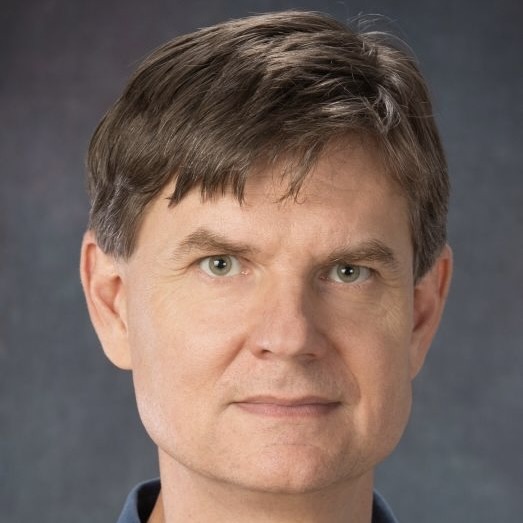
Nucleic acid melting temperature and its importance for LC analysis
MARTIN GILAR
Dr. Martin Gilar (*1966) received his Ph.D. in analytical chemistry from Institute of Chemical Technology in Prague (1996). He spent postdoc years in Hybridon Inc. (1996-1998) and Northeastern University in Boston (1998) developing separation methods for antisense oligonucleotides and fraction collector for DNA molecules. Since 1998 he has worked at Waters Corp. in Milford, Massachusetts, participating in column, sample preparation and instrument research.
Dr. Martin Gilar is a Research Fellow in the Separations R&D group at Waters Corporation. He has 30+ years of experience in the separation sciences, including chromatography, electrophoresis, and mass spectrometry. His research interest is the analysis of biopolymers, peptides, and nucleic acids. He has published over 75 peer reviewed papers. Dr. Gilar is recipient of Jaroslav Janak 2022 medal and Chromatographic Society Jubilee medal in 2023.

Weak to Strong Ion Pairing Elution Gradients to Improve the Selectivity of Oligonucleotide RPLC Separations
SZABOLCS FEKETE
Szabolcs Fekete, Consulting Scientist, Cell and Gene Therapy, Consumables at Waters Corporation
Szabolcs Fekete received his PhD in Analytical Chemistry from the Technical University of Budapest. He worked in analytical R&D in the pharmaceutical industry for 10 years, then joined the University of Geneva in Switzerland as a research associate. He joined Waters Corporation in 2021 and is now a consulting scientist. His current interests include separations of new chemical modalities, fundamentals of chromatography, column technology and new method development approaches. He has co-authored ~200 publications (including journal articles, book chapters and handbooks).

3D-printed sorbents: optimizing technology and geometry for drug extraction
MARIUSZ BELKA
Mariusz Belka graduated from Biotechnology at the Gdańsk University of Technology in Poland and continued his academic journey at the Medical University of Gdańsk. There, he earned a Ph.D. in Pharmaceutical Sciences in 2015. His research interests primarily center around developing innovative sample preparation techniques for various analytical applications, such as pharmaceutical, biomedical, and environmental analysis.
In recent years, Mariusz has been investigating the potential of 3D printing to create sorbents that can be used for the extraction of small-molecular analytes. He is a co-author of over 60 scientific publications spanning diverse fields, including analytical and medicinal chemistry.

Fewer animals, Less Waste: Automated Analysis of Organoids and Organ-on-a-Chip Systems
STEVE WILSON
Steven Ray Wilson is a Professor at the Department of Chemistry, University of Oslo. During his career, Wilson has developed and applied analytical systems with a focus on miniaturization, automation, and hyphenation. Areas have included ultra-narrow columns (e.g. PLOT systems for proteomics studies of cancer stem cells and exosomes), on-line 2D LC systems for peptidomics, and LC-NMR systems for natural product analysis. In recent years, Wilson has focused on the study of organoids and organ-on-a-chip systems, which are emerging alternatives to animal models in e.g. drug discovery. He engages in multi-disciplinary research as a PI in the Center of Excellence Hybrid Technology Hub, undertaking drug analysis and various omics approaches to the study of laboratory-grown organ models. Key visions are to develop analytical tools that will aid the reduction of animal models and the reduction of plastic waste in life science.
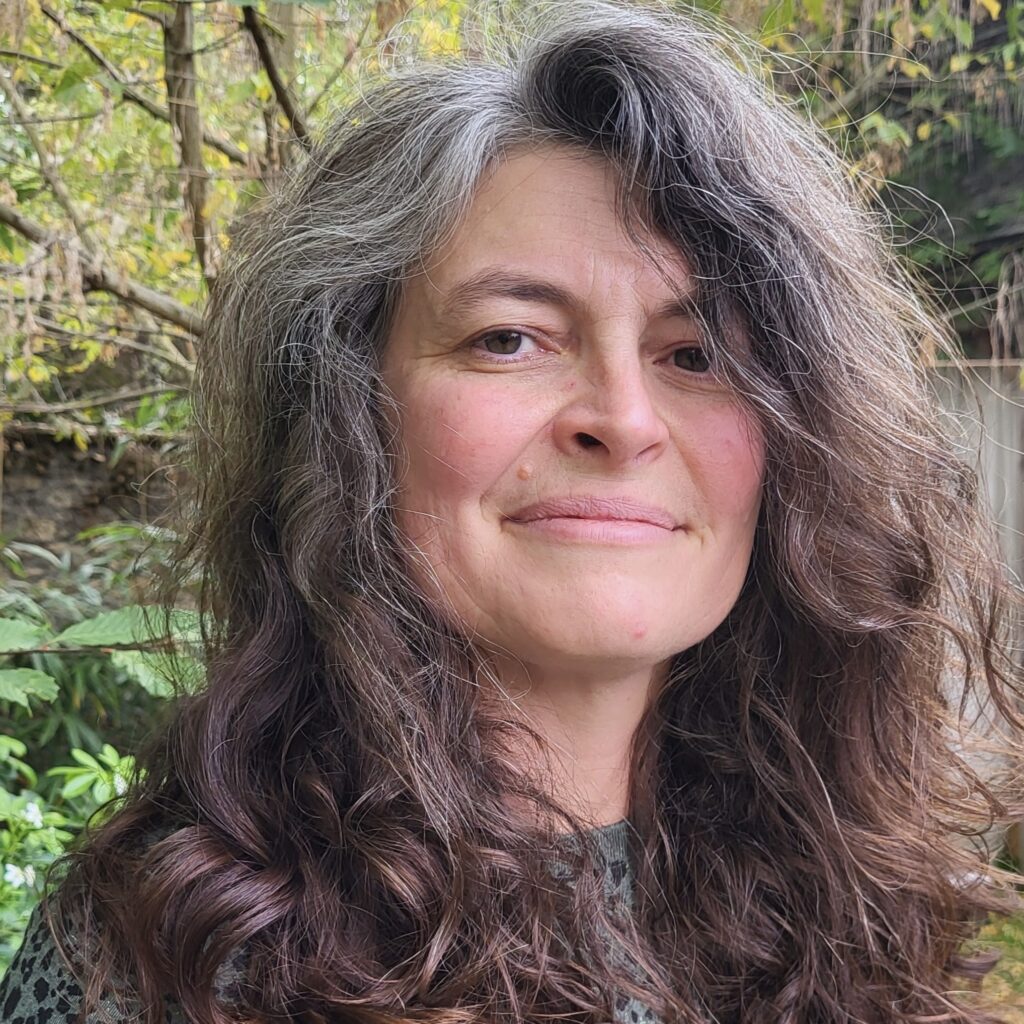
Searching for orthogonality: Supercritical Fluid Chromatography in Multidimensional Separation Techniques
KARINE FAURE
Research director at Institute of Analytical Sciences (CNRS University of Lyon, France)
Karine Faure received her PhD in Analytical Chemistry from University College Cork, Ireland. Passionate about separation sciences, she has worked over the course of her career on miniaturised liquid chromatography, preparative chromatography and multidimensional liquid chromatography. She authored 50 publications and 5 book chapters. Concerned about sustainable chemistry, her research focuses on the development of multidimensional techniques using liquid chromatography and supercritical fluid chromatography for the non-targeted analysis of natural products, renewable materials and waste valorization products.

Analyzing Complex Samples with Compact Capillary LC
JIM GRINIAS
James Grinias is a Professor of Chemistry & Biochemistry at Rowan University. His research interests primarily focus on liquid-phase separations, especially the fundamentals of column and instrument design in liquid chromatography. More recently, his group has focused on instrument miniaturization, especially for portable liquid chromatography separations, two-dimensional separation techniques, and microfluidic platforms.
He received his Ph.D. from the University of North Carolina at Chapel Hill in 2014 and then moved on to a postdoctoral fellowship at the University of Michigan until the end of 2016. His awards to date include the HPLC 2013 Csaba Horváth Award, a National Science Foundation CAREER grant, the 2021 Satinder Ahuja Young Investigator in Separation Science Award, and the 2021 LCGC Emerging Leader Award. He was also named to The Analytical Scientist’s “Top 40 Under 40” Power List in 2018 and 2022.
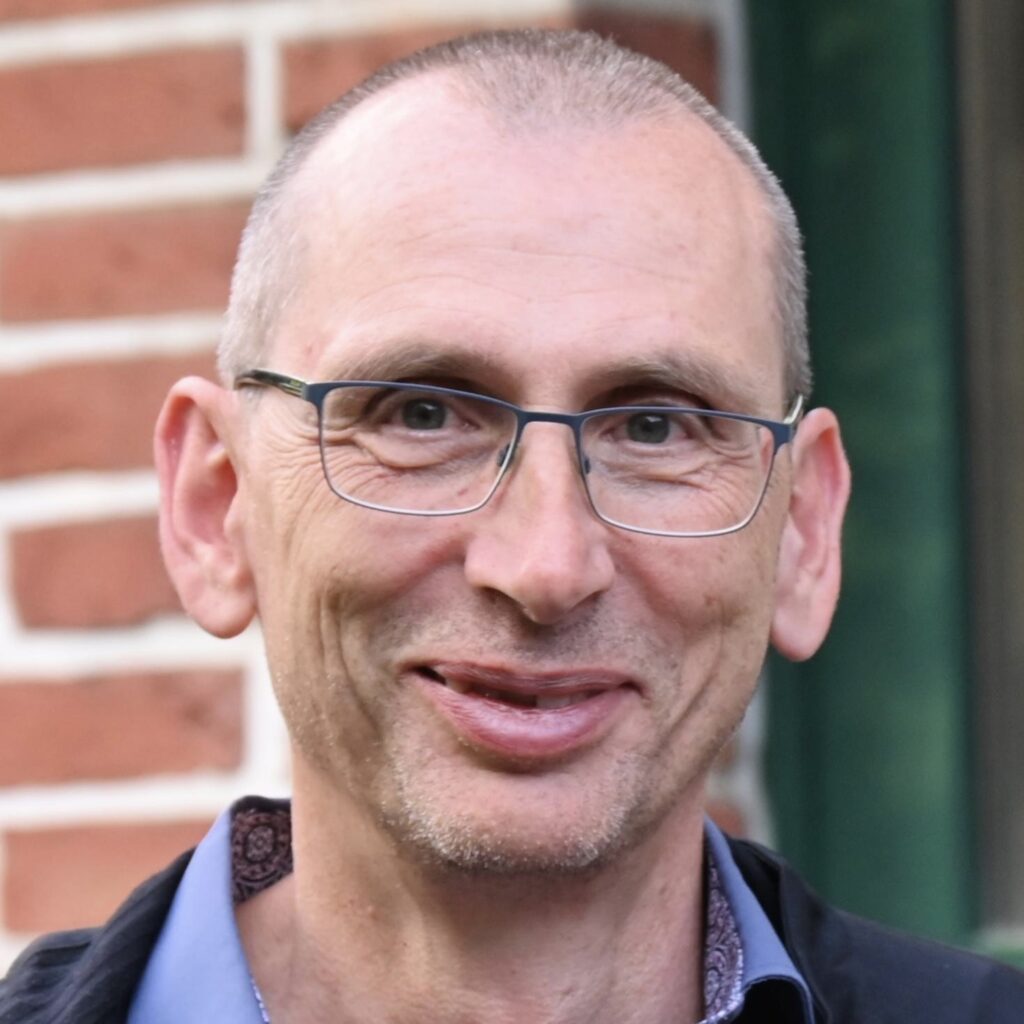
Modular microfluidics: a new concept for chip-HPLC and chip-SFC implementation and their seamless MS and IMS coupling
DETLEV BELDER
Detlev Belder is a full professor of analytical chemistry at the University of Leipzig.
His research focuses on lab-on-a-chip technology as an enabling science in chemistry.
A broad field of research and application of lab-on-a-chip technology is being
addressed in the Belder laboratories at the University of Leipzig. The Belder group is
well known for miniaturised separation techniques such as chip electrophoresis and
chip HPLC and for novel concepts in digital microfluidics. The Belder laboratory is also
working on detection methods such as coupling microfluidic chips with mass
spectrometry or ion mobility spectrometry, as well as optical methods such as
fluorescence and Raman microscopy. In recent years, a particular focus has been on
integrated chip laboratories that combine chemical reactors and analysis units on a
single chip.
Professor Belder has been honoured with several awards, including the Gerhard
Hesse Prize (2015) and the Fresenius Prize (2019).
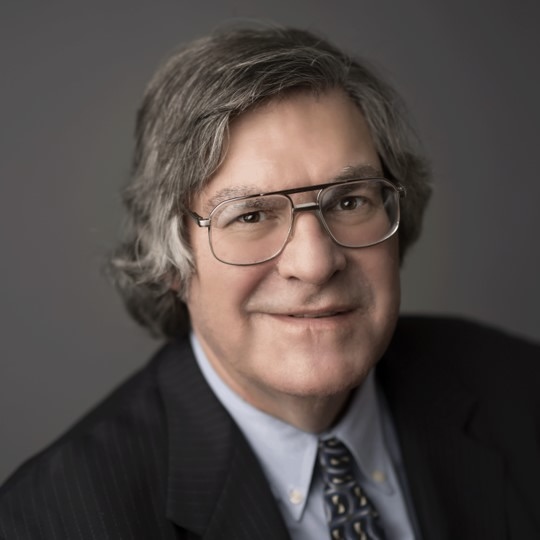
Molecular Simulations and Retention Measurements of Hydrophilic Interaction Liquid Chromatography (HILIC): How HILIC works
MARK SCHURE
Mark Schure’s scientific interests include fundamental separation science, the separation of polymers and colloids, and all aspects of solving large-scale chemical and physical problems with computers. His contributions to separation science include detailed theory, simulations and experimental investigations in the areas of 2D chromatography, chromatographic stationary phase retention mechanisms, capillary electrophoresis, electrochromatography and field-flow fractionation.
He has received the Arthur Doolittle award from the PMSE (Polymeric Materials Science and Engineering) Division of the ACS, the Northeastern University Distinguished Alumni Lecture award, the Douglas Leng award within The Dow Chemical Company, the L. S. Palmer award from the Minnesota Chromatography Forum, the Eastern Analytical Symposium award in separation science, the Stephen Dal Nogare award and the Uwe D. Neue award. Dr. Schure has been an Adjunct Professor of Chemical Engineering at the University of Delaware for over 30 years and has published over 120 papers and 4 patents.
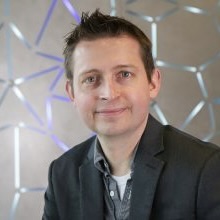
Rapid Oligonucleotide Analysis using Sample Preparation and HPLC
JARED ANDERSON
Jared L. Anderson, Alice Hudson Professor of Chemistry, and Faculty Scientist at Ames Laboratory earned his B.S. in 2000 from South Dakota State University and his Ph.D. from Iowa State University in 2005. Prior to joining Iowa State University, he was a Professor of Chemistry at The University of Toledo from 2005-2015 where held the ranks of assistant professor, associate professor, and full professor. His research focuses on the development of stationary phases for multidimensional chromatography, alternative approaches for sample preparation, particularly in nucleic acid isolation and purification, and analytical tools for trace-level analysis within active pharmaceutical ingredients. He has published over 250 peer-reviewed publications, 5 book chapters, and has co-edited a book series titled “Analytical Separation Science”. He currently holds 9 patents and is an editor for the Journal of Chromatography A.

An In-Depth Single-Cell Proteome in 5 minutes or Less
RYAN KELLY
Ryan Kelly is a Professor in the Department of Chemistry and Biochemistry at Brigham Young University (BYU). A central theme of Dr. Kelly’s research has been the development of new technological solutions for ultrasensitive biochemical analyses. His recent efforts have focused on single-cell proteomics and spatial proteomics, which have involved tailoring sample preparation, separations,ionization and mass spectrometry acquisition for low-input samples. His group’s efforts have enabled thousands of proteins to be rapidly profiled from single cells.
Dr. Kelly has authored or coauthored more than 120 publications and he is a named inventor on several patents that have been licensed and commercialized by companies including Bruker, Cellenion and his own startup MicrOmics Technologies. His work has been recognized with several awards including two R&D 100 awards, the Georges Guiochon HPLC Faculty Fellowship and the HTC Innovation Award.

Design and application of Online Liquid Chromatography-Based Process Analytical Technology to Enable Synthetic Peptide Process Development and Manufacturing
STEVE GROSKREUTZ
Steve Groskreutz, Ph.D. is the Senior Director of Analytical Development in Bioproduct Research and Development at Eli Lilly and Company. Steve joined Lilly as a post-doctoral scientist in 2017 after receiving his Ph.D. in Analytical Chemistry from the University of Pittsburgh. In 2018 he transitioned to a research scientist within the drug substance process analytical team where he accelerated the technical development and implementation of integrated, process analytical technology (PAT)-centric impurity control strategies for synthetic peptide manufacturing. He established foundational analytical and PAT platforms that were transferrable across the synthetic peptide portfolio and was key to establishing Lilly’s peptide synthesizer platforms. Since 2023, Steve has provided technical and organizational leadership for analytical development teams across synthetic and biologic modalities within Eli Lilly and Company’s Product Research and Development organization.
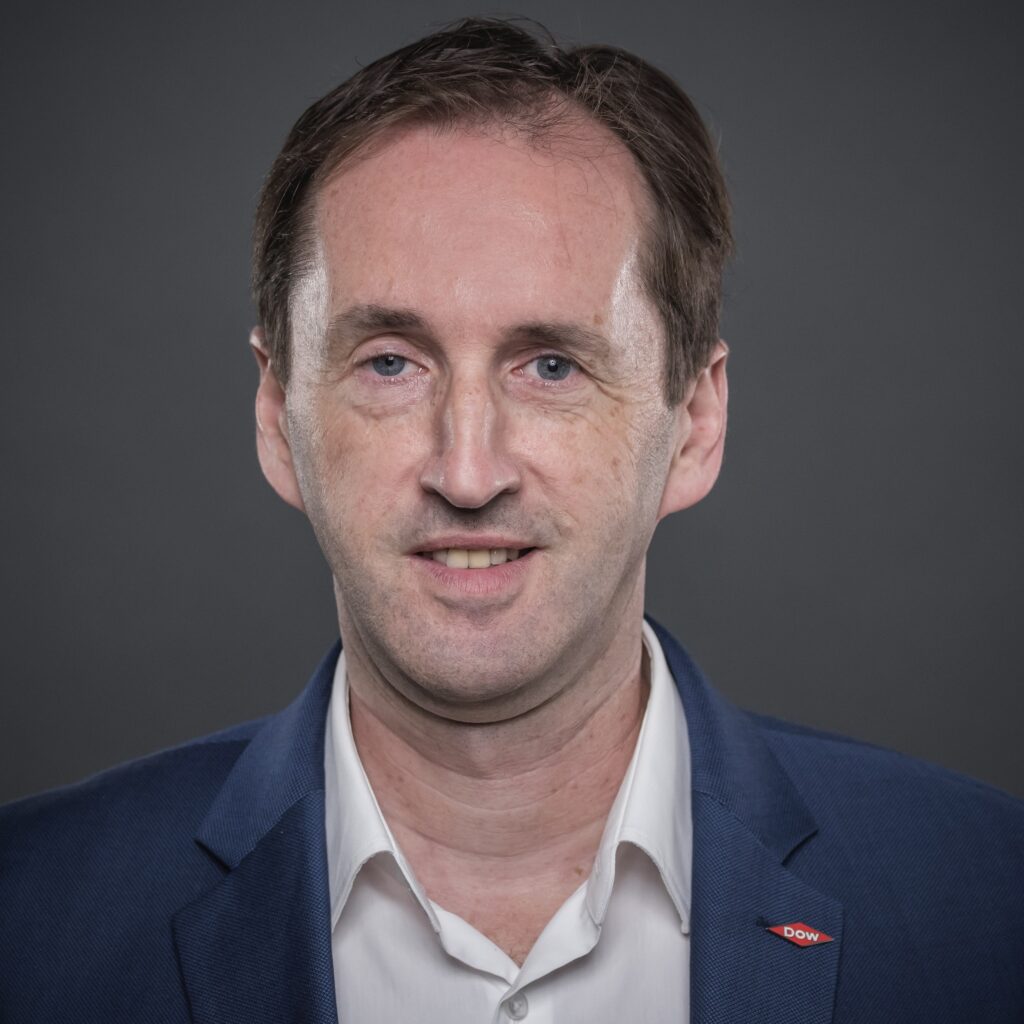
Advances in UHPLC sample introduction techniques and injection strategies
MATTHIAS PURSCH
Matthias Pursch is an R&D Fellow at Dow, located in Wiesbaden, Germany. He has held several positions in Analytical Research in Core R&D as well as in Manufacturing & Engineering in Dow. His current focus areas include defining research strategies, analytical problem solving (R&D and manufacturing projects), new technology development - in depth related to advanced chromatographic and hyphenated technologies, as well as coaching & mentoring of the next generation of technical talent. Most recent LC projects include enhanced modulation strategies and applications for 2D-LC, assessment of online-LC capabilities, as well as evaluation of novel injection techniques and new LC/SEC columns. Matthias has more than 65 publications and 60 external presentations.

Boosting sensitivity in drug metabolism research with cutting-edge LC configurations
FILIP CUYCKENS
Filip Cuyckens serves as a Director at Johnson & Johnson located in Beerse, Belgium. He earned a degree in pharmaceutical sciences, industrial pharmacy and a PhD at the University of Antwerp, Belgium. Filip has more than 25 years of experience in analytical chemistry, particularly in liquid chromatography and mass spectrometry and has authored or co-authored over 100 scientific publications.
At Johnson & Johnson R&D he is currently leading the Biotransformations team. This team plays a vital role in the end-to-end analytical support of drug metabolism related studies in discovery and development. Another part of his team focuses on imaging mass spectrometry and associated techniques to visualize the distribution of drug candidates, metabolites and biomarkers in tissues.
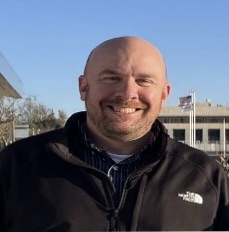
Novel Characterization Strategies for Therapeutic Oligonucleotides
TODD MALONEY
Todd D. Maloney earned his Ph.D. in Chemistry in 2002 from the University at Buffalo under the advisement of Professor Luis A. Colón. He is currently an Associate Vice President in Synthetic Molecule Design and Development at Eli Lilly and Company where he leads teams developing integrated process control strategies for synthetic oligonucleotides, peptides, small molecules, and conjugates. Throughout his career at Lilly, Todd has led the development and implementation of novel methodologies in separation science, mass spectrometry, and process analytical technology (PAT) across Lilly’s discovery, development, and manufacturing and quality organizations. He serves on the Board of Directors and is chair emeritus of the Enabling Technologies Consortium (ETC) and is the co-chair of HPLC 2026 in Indianapolis, IN, USA.

StreamFind: an open source data processing workflow assembler
RICARDO CUNHA
Dr Ricardo Cunha holds a PhD in Environmental Technology from Wageningen University & Research, based in Wetsus in the Netherlands, and an MSc in Biological and Chemical Engineering from the University of Minho in Portugal. Since 1 June 2019, he has been working as a research associate at IUTA in Germany. His work in the Analytical Research and Miniaturisation Department focuses on advanced data analysis, automation, digitalisation, and environmental and analytical technology. He is currently working on projects to develop data processing workflows for predicting equipment maintenance in the laboratory by combining open communication protocols and machine learning techniques. Dr Cunha also investigates chemical and biological transformation processes in wastewater treatment through non-target screening and quality routines for product control using Raman spectroscopy and mass spectrometry. He also has extensive experience in the development of separation and detection
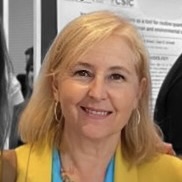
Advances in the monitoring of natural toxins in food and enviromental samples by chromatographic and electrophoretic techniques
ANA GARCIA-CAMPANA
Ana M. Garcia-Campaña is full Professor at the University of Granada (Spain), responsible of the research group "Quality in Food, Environmental and Clinical Analytical Chemistry" (FQM-302). Her research areas are focused on the use of advanced analytical platforms based on liquid chromatography and capillary electrophoresis coupled with mass spectrometry, fluorescence or ion mobility spectrometry for food and environmental quality control and safety, monitoring contaminants, including natural toxins and residues of veterinary and human drugs and pesticides. Developments of innovative and sustainable analytical methodologies and sample treatments, as well as biomarker studies in biological fluids related to the contaminant exposition have being carried out. She has published 240 articles, edited several books and co-authored 30 book chapters (h-index 54). Currently she is Vice-rector of Postgraduate Studies and Continuing Education and Vice-President of the Spanish Society of Chromatography and Related Techniques (SECyTA). She is included in the world ranking of the Stanford University “the World Scientists: World´s Top 2% Scientists”.
